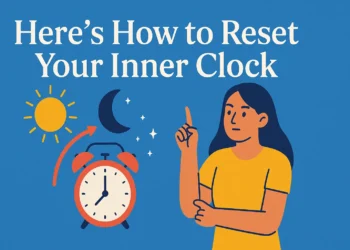Helen Keller once said, “The only thing worse than being blind is having sight but no vision.” Her words resonate deeply today, as many grapple with uncertainty about what’s ahead. Global challenges—from economic shifts to rapid tech advancements—have amplified worries about tomorrow. But what if this unease could become a catalyst for growth?
Anticipatory anxiety—the mental state of dreading future events—is more common than most realize. As psychiatrist Frank Anderson, MD, explains, “The brain often mistakes imagined threats for real ones, triggering stress responses meant to protect us.” While this instinct helped humans survive, it can now paralyze decision-making or cloud daily life with ‘what-ifs.’
This tension isn’t inherently negative. Research shows that acknowledging uncertainty builds resilience. When people learn to reframe their relationship with the unknown, they make clearer choices and reclaim agency. The key lies in balancing caution with curiosity—using past experiences as guides, not shackles.
In the following sections, you’ll discover science-backed strategies to quiet anxious thoughts, recognize growth opportunities in challenges, and rebuild confidence in your path forward. Let’s begin by exploring how anticipatory anxiety shapes behavior—and how to rewrite its script.
Key Takeaways
- Anticipatory anxiety affects daily decisions and mental well-being, according to experts like Dr. Frank Anderson.
- Global uncertainties amplify stress about future events, but proactive strategies can restore control.
- The brain’s protective fear response can be recalibrated through intentional mindset shifts.
- Past challenges offer valuable lessons for navigating new uncertainties.
- Upcoming sections will provide actionable steps to reduce anxiety and improve life quality.
Understanding the “fear of future” and Its Psychological Roots
The human mind often acts as a time traveler, projecting scenarios that may never happen. This tendency fuels anticipatory anxiety—a mental pattern where people fixate on potential threats. Dr. Frank Anderson, MD, notes: “The brain’s alarm system activates whether dangers are real or imagined, leaving many stuck in survival mode.”

What Is Anticipatory Anxiety?
Anticipatory anxiety is the mind’s attempt to control outcomes by rehearsing worst-case situations. Unlike everyday worry, it creates physical tension and racing thoughts. A 2022 University of Michigan study found that 68% of participants struggled with uncertainty, leading to social withdrawal or indecision.
The Role of Past Experiences and Trauma
Past traumas shape how people interpret new challenges. Negative memories—like job loss or relationship conflicts—train the brain to expect similar outcomes. For example, someone who faced financial instability might overanalyze minor expenses.
| Factor | Normal Anticipatory Anxiety | Generalized Anxiety Disorder |
|---|---|---|
| Duration | Short-term, tied to specific events | Persistent (6+ months) |
| Daily Impact | Manageable with coping strategies | Disrupts work, sleep, and relationships |
| Treatment Approaches | Mindfulness, reframing thoughts | Therapy, medication, lifestyle changes |
While occasional anxiety is natural, chronic cases may signal deeper issues. Dr. Anderson emphasizes: “Recognizing when worry becomes overwhelming is the first step toward reclaiming mental freedom.” If anxious thoughts persist, consulting a therapist can provide tailored tools for growth.
Recognizing Common Signs and Symptoms of Future-Related Anxiety
The body often whispers warnings before anxiety shouts. Physical responses like a racing heartbeat or tense shoulders signal that stress about upcoming events is taking hold. These reactions stem from the brain’s primal fight-or-flight system—a survival tool that sometimes misfires in modern situations.

Physical and Mental Indicators
When anticipating uncertain situations, people might experience:
- Physical: Shallow breathing, digestive issues, or chronic fatigue
- Mental: Persistent dread about hypothetical scenarios or difficulty focusing
A 2023 study tracking international students found that 74% reported sleep disturbances before major life changes. As one participant noted: “I’d lie awake mentally rehearsing every possible disaster.”
Impact on Daily Functioning
| Area Affected | Common Challenges | Example Scenario |
|---|---|---|
| Work/School | Avoiding new projects due to panic about outcomes | Delaying promotion applications |
| Relationships | Overanalyzing conversations before they happen | Canceled social plans |
| Self-Care | Neglecting exercise routines | Skipped meals due to stress |
While mild worry about life changes is normal, ongoing symptoms that disrupt routines warrant attention. Research shows people who identify these patterns early develop better coping strategies. Small steps—like noting triggers in a journal—can restore balance before anxiety intensifies.
Practical Strategies for Overcoming Fear and Anticipatory Anxiety
What if you could transform anxiety into actionable energy? Neuroscience reveals that structured approaches to managing anticipatory stress can rewire neural pathways. A 2023 Harvard study found participants who practiced daily mindfulness reduced anxiety symptoms by 39% within eight weeks.

Mindfulness: Your Anchor to the Present
Mindfulness interrupts the brain’s habit of projecting into hypothetical scenarios. Try this evidence-based exercise:
- Breath Focus: Inhale for 4 counts, hold for 4, exhale for 6—repeat 5 times
- Body Scan: Mentally check in with each muscle group from toes to scalp
Dr. Tara Brach, psychologist and meditation teacher, explains: “These practices activate the prefrontal cortex, shifting us from reactive fear to thoughtful response.”
Rewriting Mental Scripts
Catastrophic thinking often follows predictable patterns. Use this table to identify and reframe unhelpful thoughts:
| Common Thought | Challenge Question | Empowering Reframe |
|---|---|---|
| “I’ll fail this presentation” | What evidence supports this? | “I’ve prepared thoroughly and can adapt” |
| “My partner will leave me” | Is this based on facts or fears? | “We resolve conflicts through communication” |
| “I’ll never get promoted” | What steps can I take today? | “I’ll schedule a career development talk” |
Designate 15-minute “worry windows” daily to contain overthinking. Outside this time, gently redirect thoughts to the present using mantras like “This isn’t urgent” or “I choose calm.” Consistent practice builds mental agility—a key trait for navigating modern uncertainties.
Building Resilience Through Self-Care and Lifestyle Adjustments
Daily choices shape our capacity to handle life’s uncertainties. Simple habits like journaling or prioritizing sleep act as armor against anxiety, helping people reclaim their ability to thrive amid challenges. Research shows those who practice consistent self-care report 42% lower stress levels compared to others.

Incorporating Journaling into Your Routine
Writing down thoughts disrupts mental loops that fuel anxiety. A 2023 Journal of Positive Psychology study found participants who journaled for 10 minutes daily reduced overthinking by 31% in three weeks. Try these approaches:
| Journal Type | Focus Area | Weekly Benefit |
|---|---|---|
| Gratitude Log | Positive experiences | Boosts mood regulation |
| Problem-Solving | Specific challenges | Enhances decision clarity |
| Free-Writing | Unfiltered thoughts | Reduces mental clutter |
One corporate manager shared: “Spending time each morning journaling helps me spot unhelpful patterns before they spiral.” This practice builds awareness of how thoughts influence emotional health.
Effective Self-Care Practices to Manage Stress
Physical well-being directly impacts mental resilience. Consider these science-backed strategies:
- Movement breaks: 20-minute walks improve focus and lower cortisol
- Sleep hygiene: Consistent bedtimes regulate stress hormones
- Nutrition: Omega-3 rich foods support brain health
Balancing work and personal life becomes easier when you schedule protected time for hobbies or relaxation. As psychologist Dr. Emily Roberts notes: “Self-care isn’t selfish—it’s how we maintain the energy to show up fully in every part of life.” Start small—even five minutes of deep breathing can reset your nervous system.
Navigating Therapy and Professional Support for Anxiety
When self-help strategies fall short, professional guidance becomes a powerful catalyst for change. Over 41% of U.S. adults sought mental health support in 2023, according to the American Psychological Association. This shift reflects growing awareness that expert intervention can unlock lasting progress.

Choosing the Right Therapist for Your Needs
Credentials matter—start by verifying licenses through state boards or APA directories. But compatibility is equally crucial. “The therapeutic relationship accounts for 30% of treatment success,” notes Dr. Sarah Johnson, a clinical psychologist. Prepare questions like:
- What’s your experience with anxiety-related challenges?
- How do you approach underlying trauma?
- What measurable goals might we set?
Many therapists offer free consultations to assess comfort levels. Trust your instincts—if conversations feel forced, explore other options.
Exploring Online Therapy and Treatment Options
Digital platforms like BetterHelp and Talkspace provide flexible scheduling, ideal for busy professionals. A 2024 Consumer Reports analysis found 78% of users appreciated the convenience of text-based sessions. However, in-person therapy often better suits those needing trauma-focused treatments.
| Factor | In-Person | Online |
|---|---|---|
| Session Depth | Nonverbal cues enhance communication | Text/audio options increase accessibility |
| Specialized Care | Easier for EMDR or CBT techniques | Wider selection of general practitioners |
Initial sessions typically involve discussing personal history and treatment preferences. Remember: Seeking help isn’t surrender—it’s strategic self-advocacy. As one client shared: “Therapy gave me tools to rewrite my career path with confidence.”
Conclusion
Navigating life’s uncertainties begins with recognizing patterns that hold power over our choices. As explored, anticipatory anxiety often stems from past experiences magnifying potential risks. Yet simple tools—like mindfulness exercises and reframing thoughts—can reshape these mental habits.
Daily practices matter. Journaling builds self-awareness, while physical activity channels nervous energy into strength. For those needing extra support, professional guidance offers tailored strategies to break cycles of worry.
Progress unfolds through consistent action. Start small: challenge one unhelpful thought daily or try grounding techniques during stressful moments. As confidence grows, so does resilience against life’s unpredictable turns.
Remember—every step forward counts. Explore science-backed affirmations to reinforce positive neural pathways. With patience and the right tools, reclaiming agency becomes not just possible, but inevitable.
FAQ
What is anticipatory anxiety and how does it differ from regular worry?
Anticipatory anxiety involves intense dread about potential negative outcomes, often creating paralyzing “what if” scenarios. Unlike everyday concerns, it persists even without immediate threats and is linked to generalized anxiety disorder. This type of stress hijacks the brain’s ability to process realistic probabilities.
How do past traumatic events influence future-related stress?
Previous distressing experiences can condition the mind to expect similar harm in new situations. This pattern reinforces neural pathways associated with panic, making individuals hypervigilant about uncertainties. Over time, the brain may interpret neutral events as threats without conscious awareness.
What physical symptoms might indicate excessive concern about upcoming events?
Chronic tension headaches, digestive issues, or rapid heartbeat often accompany prolonged mental distress. Shallow breathing and muscle tightness are also common signs the body is stuck in a heightened stress response, even without present danger.
How can persistent dread affect work or relationships?
Constant preoccupation with hypotheticals drains focus, leading to missed deadlines or social withdrawal. Partners might perceive emotional unavailability, while catastrophic thinking erodes problem-solving skills crucial for professional collaboration.
Which mindfulness practices help interrupt catastrophic thinking patterns?
Grounding techniques like the 5-4-3-2-1 method engage the senses to anchor awareness in the present. Breath-focused meditation for 10-minute intervals also weakens the grip of imagined scenarios by activating the parasympathetic nervous system.
What techniques help reframe worst-case scenario thoughts?
Cognitive Behavioral Therapy (CBT) tools like the “probability pie” challenge irrational predictions. Listing factual evidence for/against feared outcomes builds mental flexibility. Over time, this reduces the intensity of automatic negative assumptions.
How does consistent journaling reduce uncertainty about tomorrow?
Writing about specific concerns externalizes abstract fears, making them manageable. Tracking past accurate predictions builds trust in one’s coping abilities. Patterns emerge showing most feared events never occur or are survivable.
Which daily habits strengthen emotional resilience against uncertainty?
Regular aerobic exercise regulates stress hormones like cortisol. Prioritizing 7–9 hours of sleep enhances prefrontal cortex function for balanced decision-making. Nutrient-dense diets rich in omega-3s also support neurotransmitter balance.
What qualifications should someone look for in an anxiety specialist?
Seek licensed therapists trained in evidence-based modalities like Acceptance and Commitment Therapy (ACT) or CBT. Specialists with trauma-informed certifications better address root causes rather than just symptoms.
Are digital therapy platforms effective for managing anticipatory anxiety?
Studies show online CBT programs yield similar results to in-person sessions for many individuals. Platforms offering asynchronous messaging provide real-time support during acute stress spikes, complementing traditional methods.




























































